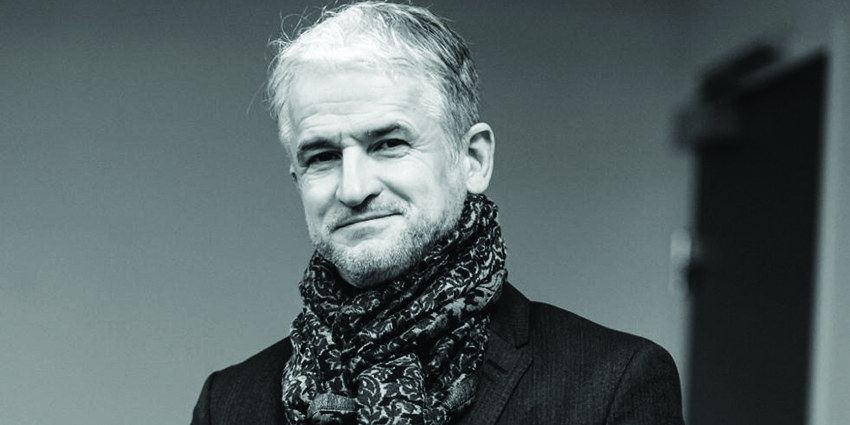Microfinance: a tool for a more inclusive economy
Interview with Eric Campos, CEO, Grameen Crédit Agricole Foundation
Perhaps because it's a highly effective tool for combating poverty, microfinance is a central issue in rethinking the global economy. The health crisis and its impact on the poorest populations have only reinforced this urgent need for financial inclusion. Paperjam Luxembourg spotlights an interview with Eric Campos, Managing Director of the Grameen Crédit Agricole Foundation.
Why is microfinance a topic that concerns you?
Today, 1.7 billion people, the majority in rural areas, lack access to finance, and the financial sector has a key role to play in addressing this global challenge. The Foundation is one of the Crédit Agricole Group's levers to promote financial inclusion and the development of rural economies in emerging countries. This is the ambition Crédit Agricole set for itself when it created the Foundation 12 years ago with Professor Yunus, 2006 Nobel Peace Prize winner: to contribute to the fight against poverty by promoting microfinance and socially impactful entrepreneurship throughout the world. The Foundation is a committed player in poor countries, serving the Group's Purpose: "Acting every day in the interest of our customers and society."
Our mission takes on even more meaning in the current context. The Covid-19 pandemic is hitting the most vulnerable populations particularly hard, and microfinance is a lever to strengthen their resilience in the face of the crisis. In this context, we have had to adapt our intervention methods and innovate. We have implemented very regular monitoring with the funded institutions to understand the effects of the crisis and their needs. We have also implemented numerous deadline deferrals to allow these institutions to support their own clients and also agree to defer microcredit deadlines. Since last March, we have also coordinated an international movement of donors, investors, and inclusive finance stakeholders to commit to preventing a liquidity crisis in the sector and provide coordinated responses to address the economic effects of the crisis.
Can you tell us about the Grameen Crédit Agricole Foundation and its objectives?
The Foundation is a multi-business operator: investor, lender, technical assistance coordinator and fund advisor, the Foundation finances and supports microfinance institutions, businesses and projects that promote inclusive finance and the development of rural economies throughout the world.
The Foundation accompanies and supports today 86 partners (74 microfinance institutions and 12 social impact businesses) in 40 countries with nearly €100 million in outstanding loans. The Foundation seeks to promote women's empowerment through economics, 88% of the final beneficiaries are women, and primarily targets rural populations: of the 7.3 million clients of institutions that the Foundation finances, 84% live in rural areas.
How does the Foundation work with the CA group today?
The Foundation has set up several partnerships with the Regional Banks and Crédit Agricole entities. We have established cooperation schemes with the Banque de Proximité à l'international (BPI) in Romania, Egypt, India and Morocco, which allows Group entities to finance microfinance institutions in local currency with the Foundation's guarantee. We have launched, with CA Indosuez Wealth (Asset Management) and CACEIS Bank Luxembourg Branch, the Inclusive Finance fund in rural areas, Crédit Agricole's first microfinance fund, to which 21 Regional Banks, Crédit Agricole Assurance and Amundi have already subscribed. Finally, with Crédit Agricole SA, we have set up "Solidarity Bankers" since June 2018, a skills volunteering scheme enabling us to offer technical assistance missions to Group employees on behalf of organizations funded by the Foundation.
Furthermore, in response to the Covid-19 crisis, the Foundation worked with Crédit Agricole SA, Crédit Agricole CIB, Crédit Agricole Wealth (Asset Management) and other key players in inclusive finance on a Joint commitment to protect microfinance institutions and their clientsThe commitment, which now has 30 signatories, is based on a set of principles designed to protect the microfinance sector and its clients from the economic effects of the health crisis. Thanks to this coordinated action, liquidity defaults were avoided, and we supported partner organizations with technical assistance missions.
What themes will the Foundation address in the coming years?
Climate change, population growth, food security, digital transformation... many challenges are at the heart of our concerns. It is urgent to act, to innovate with new means of action, and to strengthen cooperation. This conviction is at the heart of the Foundation's actions and its 2019-2022 strategic plan and its objectives: consolidate the sustainability of organizations that provide essential services with appropriate financing and technical assistance; strengthen the resilience of rural economies by supporting social impact businesses; and promote inclusive finance within the banking sector, notably through partnerships established with the Crédit Agricole group.
In the face of the Covid-19 crisis, the Foundation will continue to support, alongside its institutional, private, and solidarity partners, microfinance institutions and social enterprises with targeted financing and technical assistance to strengthen their resilience in this unprecedented crisis. We will continue to monitor the effects of the health crisis and take action to strengthen the resilience of microfinance and impact entrepreneurship, in consultation with other stakeholders.



Leave a Reply
Want to join the discussion?Feel free to contribute!